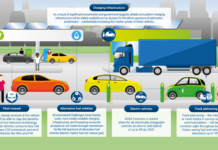Chair of this working group TBC in October.
“Raw and Critical Materials in the EU” working group focuses on addressing issues related to the availability, supply, and sustainable management of raw materials and critical materials within the European Union (EU). Raw materials are essential for various industries, including manufacturing, technology, and energy production. Critical materials are those that have a high economic importance and are at risk of supply disruptions. Here are some potential actions and initiatives that such a working group might undertake:
- Resource Assessment: Conduct assessments to identify and evaluate the availability of raw materials within the EU, including metals, minerals, and rare earth elements.
- Criticality Analysis: Identify critical materials based on their economic importance, supply risk, and strategic value to EU industries. Prioritize actions to secure their supply.
- Supply Chain Diversification: Develop strategies to diversify the sources of raw materials to reduce dependence on a single supplier or region.
- Recycling and Circular Economy: Promote recycling and circular economy practices to minimize waste and extend the lifespan of raw materials. Support research and innovation in recycling technologies.
- Raw Material Exploration and Mining: Support responsible and sustainable exploration and mining of raw materials within the EU, adhering to environmental and social standards.
- Substitution and Alternative Materials: Encourage research and development of alternative materials or technologies that can reduce reliance on critical materials.
- Trade Agreements: Advocate for trade agreements that secure the supply of raw materials and promote fair and sustainable trade practices.
- Material Efficiency: Promote material efficiency in industries by optimizing processes, reducing waste, and improving resource utilization.
- Regulatory Framework: Advocate for and contribute to the development of regulatory frameworks that support responsible sourcing and sustainable management of raw materials.
- Research and Innovation: Fund research projects focused on raw material extraction, processing, recycling, and substitution technologies. Support innovation in raw material supply chains.
- Data Collection and Analysis: Establish data collection mechanisms to monitor the availability and use of raw materials in the EU.
- Skills Development: Support education and training programs to develop a skilled workforce for the raw materials sector, including geologists, miners, and engineers.
- Public Awareness: Raise public awareness about the importance of raw materials in everyday life and the need for responsible sourcing and consumption.
- International Cooperation: Collaborate with international organizations and countries to address global raw material challenges and share best practices.
- Strategic Stockpiling: Consider strategic stockpiling of critical materials to mitigate supply disruptions during crises.
- Environmental Impact Assessment: Assess the environmental and social impact of raw material extraction and processing, and promote sustainable practices.
- Supply Chain Transparency: Encourage transparency in raw material supply chains to trace the origin and production conditions of materials.
- Stakeholder Engagement: Engage with industry, academia, NGOs, and local communities to ensure a balanced and inclusive approach to raw material management.
- Policy Recommendations: Develop policy recommendations and guidelines for EU member states and institutions to address raw material challenges.
- Monitoring and Reporting: Continuously monitor the status of raw material availability, supply risks, and sustainability efforts, and report findings to relevant stakeholders.























